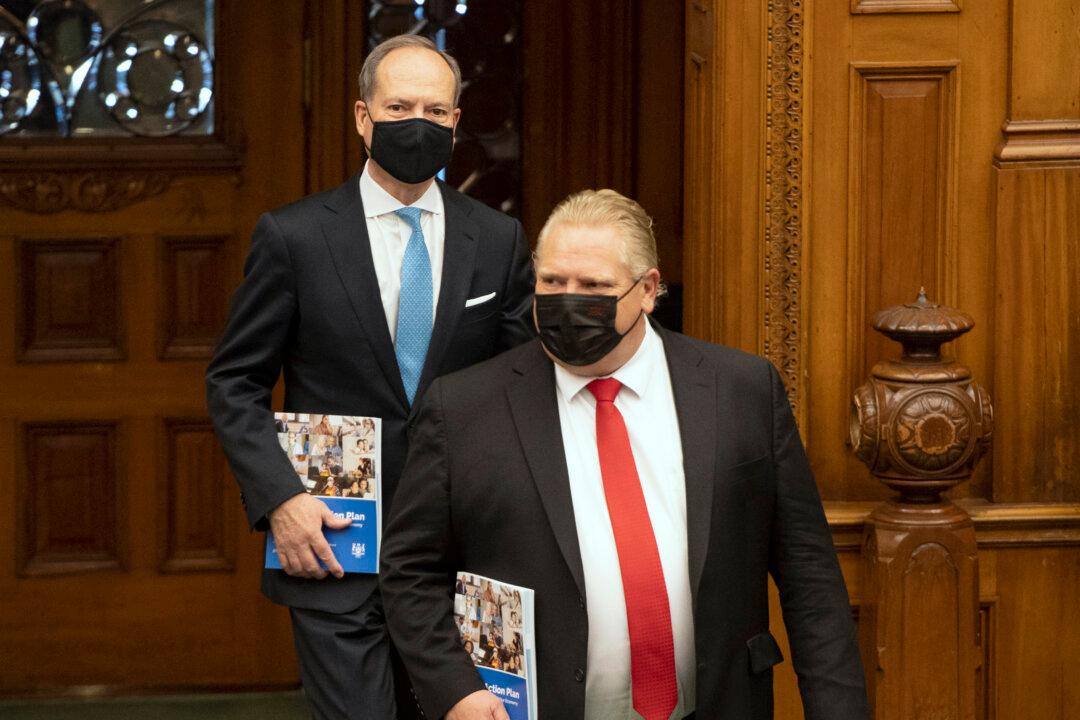Ontario pledged to boost the economy, take measures to defeat COVID‑19 and fix long-term care, and support families in the 2021 budget unveiled Wednesday, the second budget the Ford government has delivered since the pandemic.
These and other promises in the budget will be achieved with a $173 billion spending plan, resulting in a projected deficit of $33.1 billion in 2021–22.





